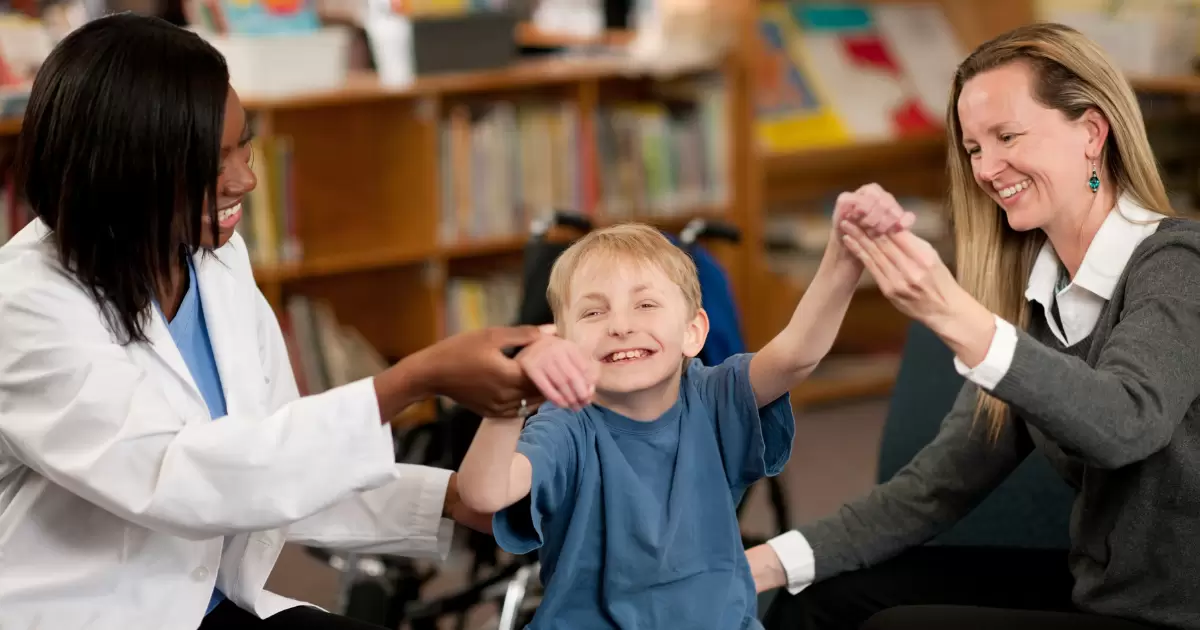Special Education Teachers and ABA Therapy Providers:
In the realm of special education, where each child’s unique needs require tailored approaches, collaboration is the cornerstone of success. The symbiotic relationship between special education teachers and Applied Behavior Analysis (ABA) therapy providers is a shining example of how working together can transform lives. This blog post explores the essential role of collaborative partnerships between these professionals, shedding light on how they combine their expertise to unlock the potential of every student.
1. Shared Goals:
- The primary objective of both special education teachers and ABA therapy providers is the well-being and development of the child. Their shared commitment to fostering growth creates a common ground for collaboration.
2. Individualized Support:
- Special education teachers bring a wealth of knowledge about their students’ unique learning styles and needs. ABA therapists can then tailor interventions to align with these insights, ensuring that each child receives highly individualized support.
3. Data-Driven Insights:
- ABA therapy relies on data collection to track progress and refine interventions. Special education teachers can provide valuable information from the classroom setting, enriching the dataset and offering a more comprehensive view of the child’s progress.
4. Comprehensive Assessments:
- ABA therapists often conduct assessments to identify specific areas of need. This information can inform Individualized Education Programs (IEPs) created by special education teachers, ensuring that academic goals align with behavioral goals.
5. Skill Generalization:
- ABA therapy excels in teaching targeted skills. Special education teachers can then facilitate the generalization of these skills into the classroom setting, fostering a seamless transfer of learning.
6. Communication and Consistency:
- Ongoing communication between teachers and therapists ensures that everyone is on the same page regarding the child’s progress and any necessary adjustments to the intervention plan.
7. Parent and Caregiver Support:
- Collaborative efforts extend to parents and caregivers, who benefit from guidance provided by both special education teachers and ABA therapy providers. This unified support network empowers families to play an active role in their child’s development.
8. Addressing Behavioral Challenges:
- When challenging behaviors arise, the combined expertise of teachers and therapists allows for a more holistic approach to understanding and managing these behaviors effectively.
Conclusion:
The collaborative relationship between special education teachers and ABA therapy providers is a testament to the power of teamwork in the realm of special education. Together, these professionals create a dynamic support system that bridges the gap between academic and behavioral development, ensuring that every child receives the comprehensive, tailored care they deserve. Their shared commitment to nurturing the potential within each student not only transforms individual lives but also serves as an inspiring model of what can be achieved when expertise and passion unite. As this collaborative partnership continues to flourish, it reinforces the notion that, indeed, every child’s journey toward success is a shared endeavor, built upon the strong foundation of collaboration and care.
For a scholarly article highlighting the research, policies, blended practices, and curriculum development relating to the relationship between ABA Therapy and Special Education click here.
For a scholarly article that highlights the perceptions that special education teachers have of Board Certified Behavior Analysts, click here.



